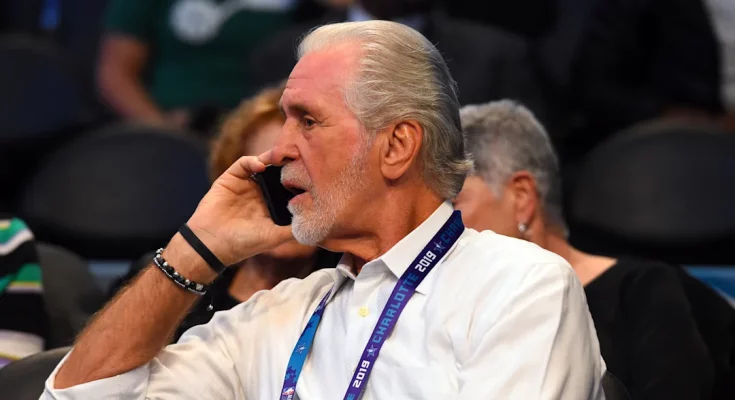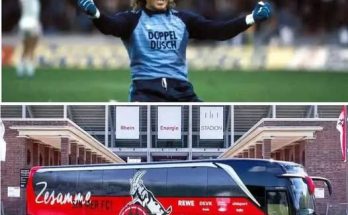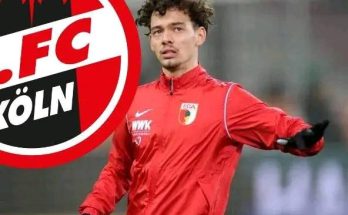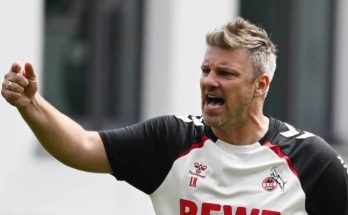The relentless churn of the NBA offseason is a captivating spectacle, a high-stakes chess match played out by general managers, agents, and players across the league. Every whispered rumor, every reported negotiation, every finalized deal sends ripples through the basketball world, shaping the competitive landscape for years to come. In this intricate dance of assets and aspirations, even the transactions that don’t happen can reveal as much about a team’s strategy and philosophy as those that do. Such is the case with the recently surfaced reports concerning the Miami Heat’s purported attempt to acquire Marcus Smart from the Washington Wizards in exchange for Terry Rozier, a move that ultimately didn’t materialize, with Smart instead landing with the Los Angeles Lakers via a buyout. This seemingly minor revelation, buried amidst a flurry of other offseason activity, offers a fascinating glimpse into the complex decision-making processes that govern the modern NBA, highlighting the interplay of player valuation, team needs, financial considerations, and the ever-present human element of fit and culture.
To truly appreciate the nuances of this reported attempted trade, we must first understand the context surrounding each player and team involved. Let’s begin with Terry Rozier and the Miami Heat. Rozier, a dynamic guard known for his scoring prowess and aggressive play, arrived in Miami in January 2024 via a trade from the Charlotte Hornets.1 The Heat, perpetually in search of offensive firepower and a reliable secondary playmaker to complement Jimmy Butler and Bam Adebayo, saw Rozier as a potential solution to their half-court offensive struggles. His ability to create his own shot, particularly off the dribble, and his improved playmaking in Charlotte were appealing. At the time of the trade, Rozier was in the second year of a four-year, $96.3 million contract, a significant financial commitment. The move was met with a degree of optimism, as it was believed Rozier could thrive in Erik Spoelstra’s structured system, benefiting from the gravity created by Miami’s other stars. However, his initial stint with the Heat was, by many accounts, underwhelming. While he displayed flashes of his scoring ability, his overall efficiency declined, particularly his three-point shooting, which dipped to under 30%. There were stretches where he appeared almost unplayable, a stark contrast to his productive years in Charlotte where he consistently averaged over 20 points per game. This dip in performance, combined with his substantial contract, undoubtedly made him a prime candidate for trade discussions as the Heat sought to recalibrate their roster. Miami’s ethos, famously built on “Heat Culture,” emphasizes grit, defensive intensity, and selfless play.2 While Rozier is undeniably a competitor, his fit within this highly specific framework, especially during his struggles, was a subject of much debate. The Heat’s ongoing need for a reliable lead guard who can consistently create offense while also contributing defensively and integrating seamlessly into their system has been a persistent theme in their offseason planning. They’ve been on the lookout for a true ballhandler who can run the offense and allow players like Tyler Herro to focus more on their scoring roles, suggesting that perhaps Rozier, despite his talent, wasn’t quite the perfect long-term solution they envisioned.
Now, let’s turn our attention to Marcus Smart. Smart, a former Defensive Player of the Year, has long been revered for his elite perimeter defense, tenacity, and vocal leadership.3 His career has been defined by his willingness to do the dirty work, dive for loose balls, and embody the “heart and soul” of whatever team he plays for. For years, he was the defensive anchor and emotional compass of the Boston Celtics, a fan favorite whose impact extended far beyond his box score statistics. After a long and impactful tenure in Boston, Smart was traded to the Memphis Grizzlies in a multi-team deal in the summer of 2023. His time in Memphis, however, was unfortunately marred by injuries, limiting him to just 34 games in the 2024-2025 season. This injury history, coupled with a significant contract, likely impacted his trade value. Despite the physical setbacks, Smart’s reputation as a defensive stalwart and a high-character locker room presence remained intact. His leadership and championship experience, having been a key piece of a Celtics team that reached the NBA Finals, are invaluable attributes that winning teams covet. The Washington Wizards, who acquired Smart as part of a larger rebuilding effort, were clearly in a different phase than either the Heat or the Lakers. They were focused on shedding salary, accumulating draft capital, and developing young talent. For a rebuilding team, a veteran like Smart, on a relatively large contract and with an injury history, might not be a long-term fit, even if his leadership could be beneficial in the short term. Their decision to eventually buy him out, rather than trading him, underscores their commitment to financial flexibility and future-oriented asset management.
The reported framework of a trade involving Rozier for Smart highlights a fascinating strategic alignment, or perhaps, misalignment. For the Heat, acquiring Smart would have been a clear embrace of their defensive identity. Imagine a backcourt with Smart’s relentless on-ball pressure and a healthy Butler on the wing – that’s a nightmare for opposing offenses. Smart’s playmaking, while not as flashy as some, is deliberate and effective, and he consistently makes the right read defensively. He brings a proven track record of elevating team defense and fostering a competitive environment, traits that are undeniably central to “Heat Culture.” The potential challenge, however, would have been his offensive limitations. Smart has never been a high-volume scorer, and his shooting efficiency, particularly from three-point range, has been inconsistent throughout his career. While he’s capable of hitting clutch shots, his primary value lies on the defensive end. For a Heat team that struggled with consistent offensive flow and perimeter shooting, bringing in Smart might have exacerbated some of those issues unless other offensive pieces were also acquired or significantly improved. Furthermore, the financial implications would have been a crucial factor. Both players were on substantial contracts, and any trade would have had to adhere to the NBA’s complex salary matching rules, which are governed by the Collective Bargaining Agreement (CBA). The CBA allows teams to exceed the salary cap under certain exceptions, but trades involving larger salaries require relatively close matches in compensation.4 The Heat had already made a move to save luxury tax payments with the Rozier acquisition, and any subsequent trade would be scrutinized through a similar financial lens.
From the Wizards’ perspective, entertaining a trade for Rozier would have presented a different set of considerations. While they were in a clear rebuilding phase, Rozier’s scoring ability, when healthy and engaged, could still be a valuable asset, either as a veteran presence or as a player to potentially flip for more draft capital later. His contract, while large, would have aligned somewhat with their need to take on salary in exchange for assets if a trade partner for Smart demanded such. However, the Wizards’ ultimate decision to buy out Smart rather than trading him to Miami (or any other team) suggests that either the trade talks didn’t progress to a mutually agreeable point, or they simply preferred the clean slate and financial flexibility that a buyout offered. A buyout frees the player to sign with any team, often for a significantly reduced salary, while the original team absorbs the remaining portion of the contract, albeit at a lower cap hit.5 This strategy is typically employed when a player’s trade value has diminished significantly due to performance, contract size, or injury, and the team prioritizes salary cap relief over acquiring tangible assets in return.
The eventual outcome, with Marcus Smart signing with the Los Angeles Lakers after his buyout, adds another layer of intrigue to this narrative. The Lakers, a perennial contender, are always looking to bolster their roster with proven talent. Smart’s arrival in Los Angeles, reportedly influenced directly by superstar Luka Doncic’s recruiting efforts, underscores his continued value as a defensive leader and a “culture-setter.”6 For the Lakers, acquiring Smart on a modest two-year, $11 million deal after his buyout is a low-risk, high-reward move. He fills a critical defensive need, especially after the departure of a player like Dorian Finney-Smith, and brings a championship pedigree. His ability to guard multiple positions and his vocal leadership align perfectly with the Lakers’ aspirations to contend for a title. The financial aspect of a buyout vs. a trade is crucial here. The Lakers were able to acquire Smart without giving up any assets, such as draft picks or promising young players, which they would have had to do in a trade scenario. This preserves their future flexibility and allows them to continue building around their core.
This reported trade attempt, and its subsequent non-fulfillment, offers several valuable lessons about the inner workings of NBA front offices and the complexities of team building.
Firstly, it underscores the dynamic nature of player valuation. A player’s perceived value isn’t static; it fluctuates based on performance, contract, age, injury history, and the specific needs of potential acquiring teams. Terry Rozier’s value was likely higher when he was consistently putting up big numbers in Charlotte, and his recent struggles in Miami may have depressed it. Conversely, Marcus Smart’s value as a trade asset was likely diminished by his injury history and contract, leading to the buyout option, but his value as a free agent on a low-cost deal for a contender remained high.
Secondly, team needs are paramount. The Heat’s interest in Smart speaks to their perpetual quest for defensive identity and a reliable point guard presence. Their current roster analysis suggests a continued need for a playmaking point guard and wing depth. The Lakers’ pursuit of Smart, even post-buyout, reflects their immediate need for perimeter defense and veteran leadership. Rebuilding teams like the Wizards, on the other hand, prioritize draft picks and salary cap flexibility over veteran talent that doesn’t fit their long-term timeline.
Thirdly, the NBA’s Collective Bargaining Agreement plays a significant role in shaping trade possibilities. The intricate rules around salary matching, trade exceptions, and luxury tax implications often dictate what moves are feasible. The soft salary cap system, with its various exceptions, allows teams to operate above the cap but comes with penalties, making teams more mindful of their financial commitments.7 The difference between trading a player and buying them out has profound financial ramifications for both the team and the player. A buyout agreement typically involves the player giving up a portion of their guaranteed salary to become a free agent, allowing them to sign with a new team, often a contender, for less money but with more control over their destination.
Fourthly, the human element in trades cannot be overstated. Team chemistry, locker room dynamics, and player fit are critical, albeit intangible, factors. The Heat’s “culture” is a powerful force, and any player brought into the organization must align with its principles. While both Rozier and Smart are respected professionals, their individual styles and personalities would have contributed differently to the Heat’s locker room. Reports that Rozier has been a “very good teammate” despite his struggles highlight that while on-court performance may lag, off-court professionalism can still be valued. Marcus Smart’s renowned leadership and intensity would have seamlessly integrated into Miami’s gritty identity, despite his past battles with Heat players as a Celtic. The fact that Luka Doncic personally recruited Smart to the Lakers also underscores the growing influence of superstar players in personnel decisions, a trend that is becoming increasingly prevalent across the league.
Finally, the reported attempt speaks to the proactive nature of NBA general managers. They are constantly exploring all avenues to improve their rosters, even if those avenues don’t ultimately lead to a deal. The process involves extensive scouting, financial modeling, and negotiation. General managers must weigh the potential upside of a move against its risks, considering everything from on-court performance to locker room impact to long-term financial flexibility. The idea of swapping two established guards with different skill sets and contractual situations demonstrates the creative problem-solving and strategic thinking that goes into navigating the trade market.
In conclusion, the unfulfilled trade scenario involving Terry Rozier and Marcus Smart, while not a blockbuster deal that reshaped the league, offers a rich educational tapestry for understanding the intricate world of NBA transactions. It’s a microcosm of the larger forces at play: the relentless pursuit of competitive advantage, the careful balancing act of talent acquisition and financial prudence, and the acknowledgment that team building is as much an art as it is a science. The Miami Heat’s reported interest in Smart, despite already having Rozier, illuminates their consistent focus on defensive intensity and a specific type of leadership, while the Wizards’ decision to buy out Smart and the Lakers’ subsequent acquisition of him showcase the diverse strategies employed by teams at different stages of their competitive cycles. As the NBA continues to evolve, with its ever-shifting player roles, burgeoning salaries, and complex collective bargaining agreements, understanding these underlying dynamics becomes crucial to appreciating the strategic genius – and occasional missteps – that shape the destiny of every franchise. The league’s drama isn’t just played out on the court; it’s meticulously crafted in the front offices, where every potential trade, whether executed or not, contributes to the ongoing narrative of ambition, adaptation, and the relentless pursuit of championship glory.



